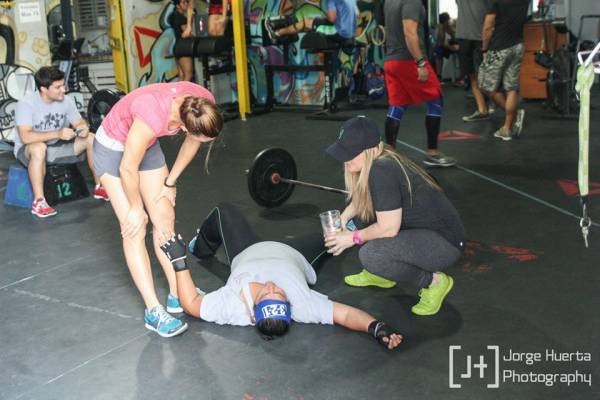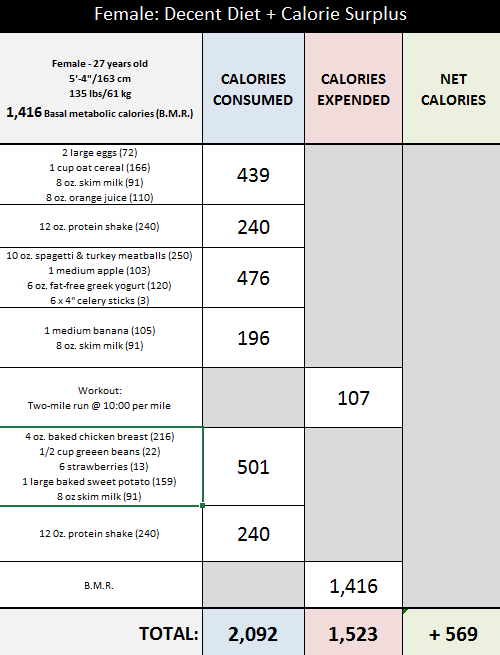Conventional wisdom suggests you cannot out-exercise a bad diet to achieve fat loss. That simply means if you eat like crap, you can’t combat that calorie hoarding with an exercise counterpoint.
On the surface that seems logical, but upon further review it begs the question, “Why not?” Can you not make some type of dent into poor eating habits via regular and productive exercise? The answer, of course, depends on how bad your diet is and how hard you work.
RELATED: The Right Way to Lose Fat: How to Exercise
So, let’s hear it for the sub-par eater and average exerciser seeking to get ripped. There may be some hope for you. I’m about to explain how you can have your cake and eat it, too.
Calories In Versus Calories Out
Scratch your noodle and think about this. Isn’t most of the battle in fat burning a calories-in-versus-calories-out endeavor? Yes, I know it can be further dissected into the type of calories consumed – good carbs versus bad carbs, different types of fats and proteins – and your energy expenditure regarding the length of an exercise activity and the effort of intensity put forth.
Those are all fine topics of discussion, but do not over-look the rudimentary concept of simple calories in versus calories out. The majority of the time that equation applies to the average Sally or Jim.
“If you consume fewer calories than used to sustain basal metabolism and daily activity level, you’ll lose weight.”
This is pretty much a proven fact: if you consume a greater number of calories than used to sustain basal metabolism and daily activity level, you’ll gain weight. Unless you’re doing hard strength training, this results in the extra calories stored in the body as body fat, all other factors being equal.
If you consume fewer calories than used to sustain basal metabolism and daily activity level, you’ll lose weight. A calorie deficit such as this can tell your body to tap into stored adipose fat, all other factors being equal. Again, proper strength training factors in. If an individual is attempting to grow or at least preserve muscle mass via strength training, there is a better chance of losing fat as opposed to muscle.
RELATED: It’s Not Your Metabolism, It’s Your “NEAT” That’s Stopping Your Fat Loss
I know it sounds too simple and other factors do enter the equation, but for the most part this is all true.

Calorie Intake Versus Energy and Exercise Outputs
So, take a look at some simple facts as they apply to calorie consumption, exercise, and scale weight:
Female
- 27 years old
- 5’4″ (163 cm) and 135 pounds (61 kg)
- Basal metabolism: 1,416 calories per day
Male
- 35 years old
- 6’0” (183 cm) and 205 pounds (93 kg)
- Basal metabolism: 2,020 calories per day
Click on the links below to see these four examples and compare various calories intakes versus energy and exercise outputs.
- Female: Decent diet, calorie surplus
- Female: Poor diet, calorie deficit
- Male: Decent diet, calorie surplus
- Male: Poor diet, calorie deficit
Example: Female decent diet, calorie surplus
Conclusions
- Male or female, if you consume too many calories and don’t expend a greater number of calories (all other factors remaining equal), you’ll gain scale weight.
- Male or female, if you consume fewer calories than expended (again, all other factors remaining equal), you’ll lose scale weight.
RELATED: The 3 Pillars of Fat Loss
Yes, you can eat like crap and lose weight or eat like a champion and gain weight.
To lose body fat, it is more prudent to consume calories of a healthier nature (better food choices) combined with an overall calorie deficit (demanding exercise) to lose appropriate body weight.
Photo 1 courtesy of Shutterstock.
Photo 2 courtesy of Jorge Huerta Photography.







